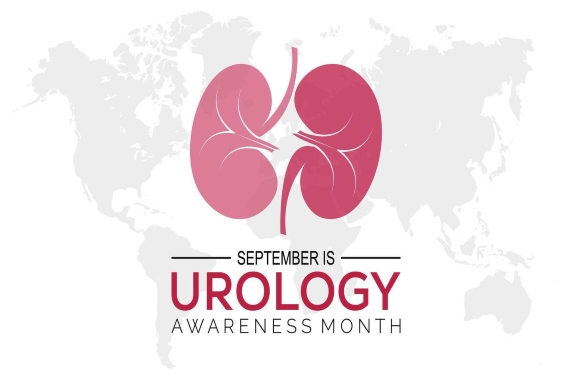Urology Awareness Month is here to break the silence around urological health by highlighting how important it is and how common these conditions really are. Many people struggle with urological health issues but often feel too embarrassed to speak up. This month is a reminder that you’re not alone, and there’s no shame in seeking help.
The sooner you talk to your GP when something doesn’t feel right, the better. Early detection makes it easier to start treatment and get back to feeling like yourself. In some cases, exploring independent microbiome testing can also provide valuable insights into what’s going on in your body, helping you better understand your symptoms and find the right path forward.
Here are the common urological conditions:
- Urological cancers (kidney, bladder, prostate, penile and testicular cancer)
- Kidney stones
- Urinary incontinence
- Overactive bladder
- Urinary Tract Infections
- Infertility
What are the symptoms to look out for?
Symptoms of urological conditions can vary depending on the specific issue, but there are several signs that commonly appear across different illnesses. If you’re experiencing any of these symptoms, it’s important to seek medical advice, even if they seem mild. While some signs are more obvious, such as incontinence and pain or changes in urination, others may be more subtle. However, even less noticeable symptoms shouldn’t be ignored, as they could point to an underlying urological condition that needs attention.
Symptoms include:
- Painful urination
- Pain during intercourse
- Frequent urination
- Pelvic and lower abdominal pain
- An inability to completely empty the bladder
- Blood in urine
- Unusual discharge
This list is not exhaustive, and it’s important to seek medical advice if you notice anything unusual related to your urological health. Trust your instincts; if something doesn’t feel right, speaking with a healthcare professional is always the best first step.

Why is testing important?
Undergoing seminal and urine microbiome testing can reveal crucial information regarding your health, providing insights into your urological health in a number of ways, the urine microbiome, for example, reveals information regarding your urological health. The urine microbiome can indicate the presence of a UTI, it can reveal a predisposition to chronic urinary conditions such as interstitial cystitis and overactive bladder, and also has the potential to ascertain prostate health.
The composition of the seminal microbiome can reflect underlying urological conditions while also providing valuable information about fertility potential. Certain bacteria can influence sperm quality, DNA integrity, and motility, while elevated levels of pathogens may impair fertility. Microbiome testing can help identify these factors.
Similar to the urine microbiome, the seminal microbiome offers information about prostate health and aids in detecting asymptomatic sexually transmitted infections and other pathogens that may escape conventional testing. If you feel something isn’t quite right, your GP should be your first point of contact, as they can refer you to the right specialists. If questions remain, microbiome testing can provide a clearer picture of your urological health. ScreenMe offers services designed to give you personalized insights and guidance, helping you take control of your health with confidence.
How to maintain good urological health?
- Drinking plenty of fluids – aim to drink roughly 2 litres of water per day in winter and 2.5 litres in summer to stay well hydrated.
- Go to the bathroom when you need to – holding back from urinating is likely to strain your bladder muscles and cause bladder infections.
- Practice good hygiene – urinating after sexual activity and wearing breathable underwear helps prevent urinary tract infections.
- Eating well – a diet abundant in vegetables, fruits, and whole grains can help promote healthy bladder and kidney function.
- Regular screening – Seeing a urologist regularly can help catch early signs of prostate and bladder cancer, as well as other urological issues.
Exploring seminal microbiome testing and urine microbiome testing further is a valuable way to gain deeper insights into your urological health, helping you take proactive steps to protect your wellbeing and make informed choices for your long-term health. For more detailed information, you can also visit the official website of The Urology Foundation.




